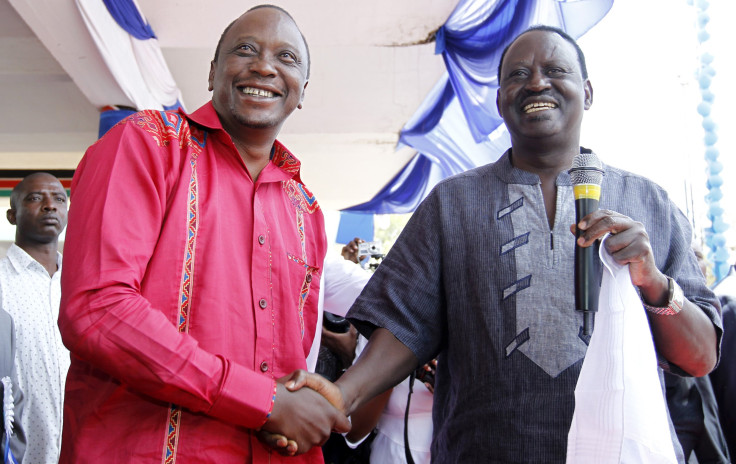Kenya election updates: How Uhuru Kenyatta and Raila Odinga fight is going

Kenya was enthralled by panic-buying on Monday amid the opposition leader’s forecast that Tuesday’s election would be rigged. National Super Alliance (NASA) coalition leader Raila Odinga has warned that the national poll may be manoeuvred so Uhuru Kenyatta would keep the leadership.
On Tuesday, more than 180,000 police are reportedly deployed across Kenya for the poll. Electoral officials and observers, both local and foreign, will watch the voting and counting as fears of violence and vote rigging have overshadowed the presidential campaign.
Tensions are already high as millions of voters are expected to heads to the polls. Political analyst and lobbyist Benji Ndolo said the biggest danger in the election was tribalism that may lead to violence. He added that some Kenyans are more loyal to their tribe than their nation. Ndolo explained that an increasing number of people feel they are not invested in the country and that they do not have anything to gain from the system.
Odinga vs Kenyatta
The election is expected to be a close fight between Odinga and Kenyatta. Kenyatta is seeking a second term in office. He promises unity and development.
He stated that there is no need to fight because of politics. "Your neighbour is your brother and sister, regardless of where they come from, let us cast our votes, go back home and continue living as we have always done before."
Odinga, on the other hand, presented himself as the “everyman” candidate. He seeks to break the electoral drought following his failure to secure the presidency in 2007 and 2013. His coalition is confident he will win this time, but expresses concern about Electoral Commission's ability to deliver a proper result.
"We are saying that the law says Kenyans must cast their ballots through the electronic voting system which is called EVID, Electronic Voter Identification Devices, and we have said that if that system does not work, this vote cannot go on," ABC quotes him as saying. He assured people at Uhuru Park, Nairobi that all steps possible to ensure a fair fight have been taken by his party.
One of these steps was winning a court battle to have the results announced at constituency rather than national level. This may lessen opportunities for an alleged manipulation.
In 2007, the election claimed the lives of more than 1,000 people. Over 660,000 people were forced from their homes.
Read More:
Turnbull sets December 7 deadline for same-sex marriage verdict
How far workers will go to remain employable in 2030
Al Jazeera English/YouTube





















